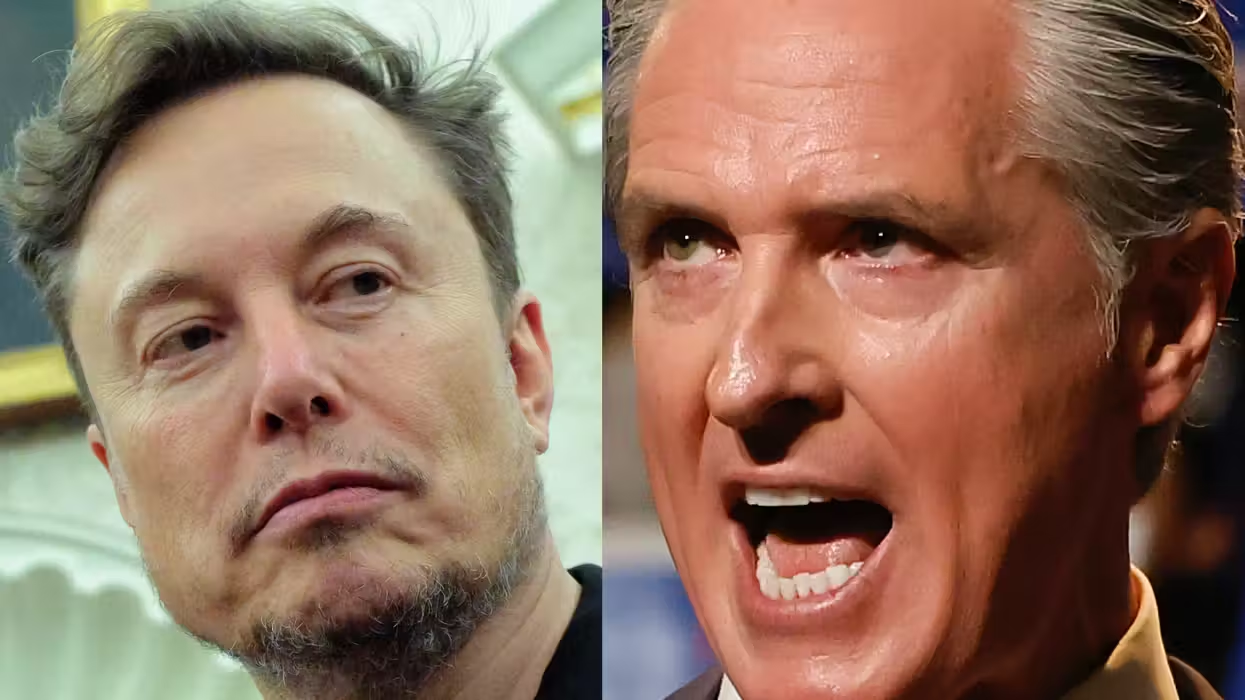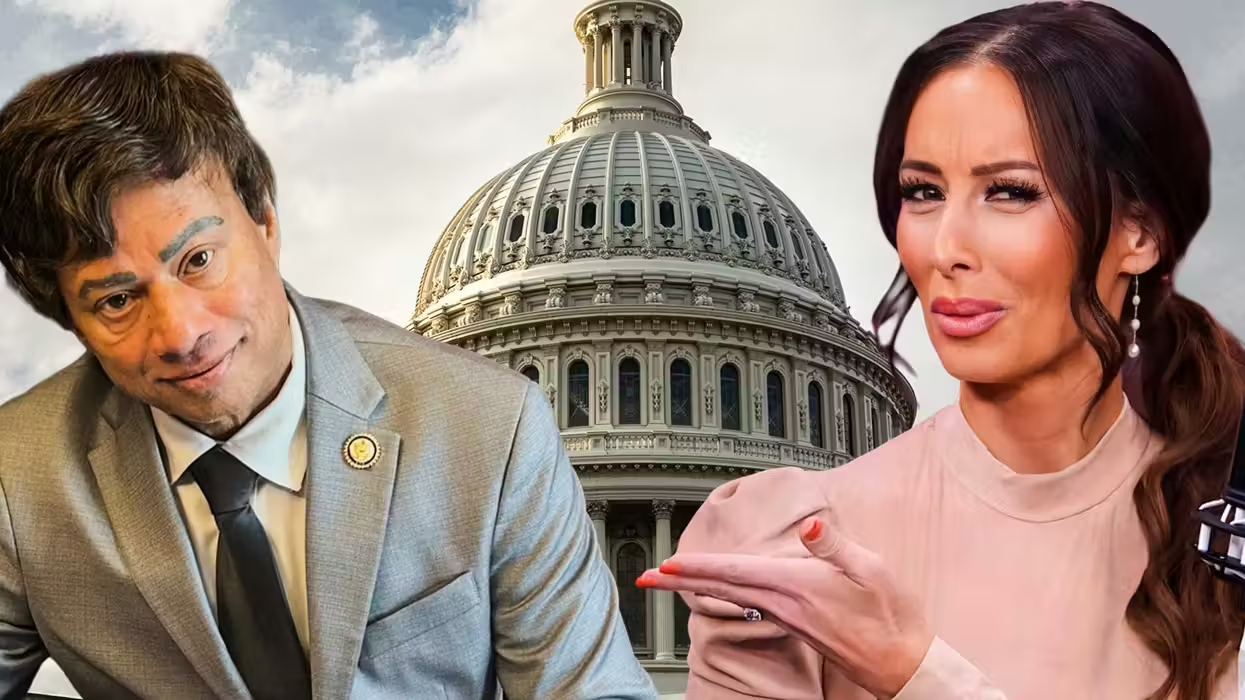© 2025 Blaze Media LLC. All rights reserved.
 Left to right: German Chancellor Angela Merkel, Japanese President Shinzo Abe, Canadian Prime Minister Stephen Harper, French President Francois Hollande, U.S. President Barack Obama, Italian Prime Minster Mario Monti, & U.K. Prime Minster David Cameron. (Getty Images).
Left to right: German Chancellor Angela Merkel, Japanese President Shinzo Abe, Canadian Prime Minister Stephen Harper, French President Francois Hollande, U.S. President Barack Obama, Italian Prime Minster Mario Monti, & U.K. Prime Minster David Cameron. (Getty Images).
The world’s biggest banks earlier this week asked the Group of 20 economic powers to please, please, please work together to avert a currency war, TheBlaze reported Monday.
And it looks like they are not alone in their fear of a possible currency clash: The seven leading economic superpowers (i.e. “The G-7”) warned Tuesday that tampering with exchange rates could adversely impact the global economy.
In a statement published Tuesday on the Bank of England website, the G-7 finance ministers and central bankers insisted they remained committed to exchange rates driven by the market -- not government or central bank policies -- and would consult closely when it comes to sharp movements in foreign currency markets.
"We are agreed that excessive volatility and disorderly movements in exchange rates can have adverse implications for economic and financial stability," said the G-7, which also counts Canada, France, Italy and current president, the U.K., among its members.
There have been increasing concerns around the world that countries might manipulate their exchange rates through their domestic economic policies in order to gain an edge. A lower foreign exchange rate can make a country's exports cheaper, thereby boosting growth. But one currency can fall only if another rises - which in turn will create trade problems for other countries.
This process could spark a "currency war" -- a destabilizing battle where countries compete against one another to get the lowest exchange rate.
The statement comes ahead of a meeting in Moscow at the weekend of finance ministers from the world's top 20 industrial and developing countries. In light of the recent swings in the foreign exchange markets, notably relating to the Japanese yen, currency issues were expected to feature heavily during the Group of 20 discussions in the Russian capital.
Much of the recent volatility in foreign exchange markets has been a by-product of developments affecting the Japanese yen, which dropped Tuesday to its lowest level against the dollar since May 2010.
Though Japan insists it's not targeting any particular exchange rate, there are fears that the benefits the country will potentially enjoy from the lower yen may force others to start using their currencies as an economic weapon.
That's where the problems really start and conjures up images of the 1930 when countries pursued tit-for-tat devaluations in order to get an edge. However, the outcome was to decimate global trade, accentuate the depression and sow the seeds for World War II.
Several European leaders have highlighted the increase in the value of the euro as a potential problem, with French President Francois Hollande going as far to say the Eurozone should target an exchange rate for its currency.
 U.S. Treasury Secretary Timothy Geithner and U.S. Federal Reserve Chairman Ben Bernanke attend a meeting of the G7 Finance Ministers and Central Bank Governors in Tokyo October 11, 2012. (Reuters)
U.S. Treasury Secretary Timothy Geithner and U.S. Federal Reserve Chairman Ben Bernanke attend a meeting of the G7 Finance Ministers and Central Bank Governors in Tokyo October 11, 2012. (Reuters)
However, European Central Bank President Mario Draghi dismissed politicians' comments that the ECB should influence the exchange rate of the euro.
"They are fruitless and frankly increase the confusion around exchange rates and frankly we don't need that," Draghi said at a news briefing Tuesday after speaking with members of the Spanish parliament.
The G-7 did not voice any direct concerns over the new Japanese economic approach, which the government hopes will get the world's number 3 economy growing again following two decades of stagnation and deflation. After all, Japan was a signatory of the statement.
"We reaffirm that our fiscal and monetary policies have been and will remain oriented towards meeting our respective domestic objectives using domestic instruments, and that we will not target exchange rates," the G-7 said.
Follow Becket Adams (@BecketAdams) on Twitter
The Associated Press contributed to this report.
Want to leave a tip?
We answer to you. Help keep our content free of advertisers and big tech censorship by leaving a tip today.
Want to join the conversation?
Already a subscriber?
more stories
Sign up for the Blaze newsletter
By signing up, you agree to our Privacy Policy and Terms of Use, and agree to receive content that may sometimes include advertisements. You may opt out at any time.
Related Content
© 2025 Blaze Media LLC. All rights reserved.
Get the stories that matter most delivered directly to your inbox.
By signing up, you agree to our Privacy Policy and Terms of Use, and agree to receive content that may sometimes include advertisements. You may opt out at any time.






